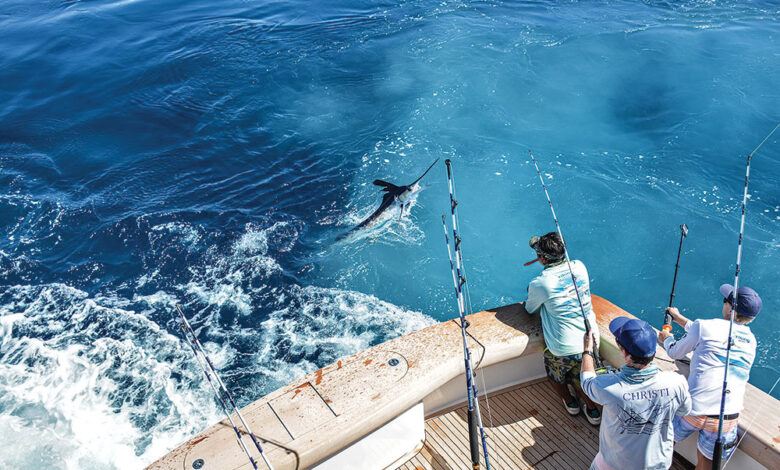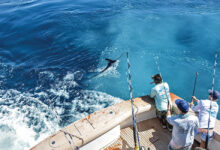Is Fishing a Sport?

Is Fishing a Sport often seen as a peaceful pastime by a quiet lake or a thrilling venture into untamed waters, brings a longstanding debate that echoes in casual conversation and professional forums: Is fishing a sport? Some argue it’s a recreational hobby, more about patience than prowess. Others insist it’s a strategic, physically demanding pursuit deserving its rightful place beside baseball, basketball, or golf. Unpacking this question requires a deep dive into what defines a sport, what fishing truly demands of its enthusiasts, and why the lines between pastime and competitive challenge are far blurrier than most would admit.
Defining Sport in the Modern Context
Before answering whether fishing is a Sport, we need to establish what qualifies something as a sport. Traditionally, a sport involves physical exertion, skill, and an element of competition. By that definition alone, fishing checks more boxes than skeptics may admit. Anglers aren’t just sitting on a dock; they’re casting, reeling, manoeuvring boats, studying currents, weather patterns, and fish behaviour. This isn’t just about tossing a line in the water and hoping for the best—real, tangible skill is involved.
Consider the mental and physical coordination needed to track a moving fish through deep water, time your hook set with precision, or wrestle a trophy bass into a net without snapping your line. There’s strategy, endurance, and adaptation all wrapped into every outing. So when we ask if Is Fishing a Sport, the answer starts leaning heavily toward yes based on physical and cognitive demands alone.
Competitive Fishing: More Than Just a Hobby
Is Fishing a Sport were purely a hobby, we wouldn’t have professional bass circuits, international tournaments, or high-stakes competitions that rake in serious prize money. Competitive fishing is booming, attracting elite anglers from across the globe who devote countless hours to training, scouting waters, fine-tuning their gear, and perfecting their techniques. These competitors don’t just want a relaxing day in the sun—they want the win.
The level of preparation that goes into a tournament speaks volumes. Every decision matters: bait selection, lure retrieval speed, casting angle, location scouting, and adapting to ever-changing conditions. Just like any mainstream sport, preparation and execution mean the difference between victory and going home empty-handed. The high pressure, time constraints, and audience scrutiny amplify the competitive nature of the entire experience. So when someone asks Is Fishing a Sport, it’s not just a yes—it’s a resounding yes from anyone who’s entered the ring, or in this case, the water.
The Physicality of the Angler’s Experience
One of the biggest misconceptions about Is Fishing a Sport is that it’s physically passive. People picture someone lounging in a chair with a cooler by their side, but this only scratches the surface of what fishing entails, especially in more extreme styles like fly fishing, deep-sea Is Fishing a Sport and ice fishing. The physical endurance required can be intense. Wading against strong river currents, hiking remote trails to find untouched waters, or battling massive fish in open ocean waters takes stamina and strength.
Professional anglers often work long days, handle heavy gear, and endure harsh elements. Their bodies take a toll similar to those in more traditionally accepted sports. Sun exposure, dehydration, muscle strain, and fatigue are all common. Recovery days after tournaments are routine, which further cements the truth behind the question that Is Fishing a Sport. It’s not just active—it’s demanding.
Tactical Thinking and Strategic Mastery
Is Fishing a Sport isn’t a mindless endeavour. It’s a cerebral game that requires planning, observation, and a nuanced understanding of ecosystems. Successful anglers are part scientist, part athlete, and part philosopher. They read water clarity, temperature, and structure like a playbook. They anticipate fish behaviour based on weather shifts and seasonal patterns. This level of analysis mirrors the strategic planning found in chess or football.
Adaptability is key. Fish don’t follow a script. One moment, you’re reeling in a monster; the next, you’re staring at still water for hours. Anglers must constantly pivot, refine techniques, and remain mentally resilient in the face of unpredictability. The dynamic nature of the sport calls for acute decision-making. So the next time you wonder Is Fishing a Sport , consider the mental sharpness needed to outthink an opponent you can’t even see.
Culture and Community: The Spirit of Sportsmanship
Every sport has its culture—its values, rituals, and unwritten codes. Fishing is no different. There’s camaraderie in the community, whether you’re sharing tips at the tackle shop or swapping stories by the fire. The respect anglers hold for each other, for the water, and for the catch itself speaks to a deep sense of sportsmanship. There’s also the competitive fire—friendly rivalries, tournament banter, and the pursuit of personal bests.
The culture of Is Fishing a Sport fosters both individual growth and collective respect. Young anglers look up to seasoned pros, and mentorship runs deep. Conservation efforts are often led by the fishing community itself, proving that the spirit of competition can coexist with responsibility and stewardship. These aren’t just weekend warriors—they’re passionate, dedicated individuals who live and breathe their craft. The emotional investment alone supports the claim when pondering whether fishing is a sport.
Fishing in the Eyes of Official Organisations
While casual observers may still waffle, many sporting institutions have already answered the question. Governing bodies recognise Is Fishing a Sport as a legitimate sport, complete with standardised rules, official rankings, and organised events. International bodies regulate competitions and enforce ethical fishing practices, ensuring a level playing field.
Major sponsorships, televised events, and a dedicated fan base all point to Is Fishing a Sport growing legitimacy in the sporting world. Just as esports or skateboarding evolved from niche interests into respected sports, fishing has crossed that threshold. It’s no longer about perception—it’s about the infrastructure in place that supports it as a competitive endeavour. So again, is fishing a sport? According to the official record books, absolutely.
The Psychological Grind of Competitive Angling
Let’s talk mental resilience. Fishing isn’t just physically challenging—it’s emotionally taxing. Anglers face long stretches without bites, changing conditions, and the constant pressure of the unknown. You can be the most prepared person on the water and still walk away empty-handed. It’s humbling, frustrating, and often character-building.
Handling disappointment, staying optimistic, and pushing forward takes a mental toughness akin to what we expect from marathoners or elite tennis players. The solitary nature of the sport also amplifies these challenges. There’s no team to fall back on—every decision, every mistake, and every success falls squarely on your shoulders. That internal battle, waged beneath the surface, is a defining trait of athletes. The persistence needed speaks volumes about the true answer to whether fishing is a sport.
Conclusion: Embracing Fishing as a True Sport
The question Is Fishing a Sport has echoed through tackle shops, online forums, and lakeside conversations for generations. But when we peel back the layers—the physical exertion, mental strategy, competition, culture, and official recognition—the answer becomes clear. Fishing is not only a sport, but it’s a multifaceted one that demands respect and recognition.
Whether casting from a kayak at dawn or competing in a high-stakes bass tournament, you’re engaging in a pursuit that challenges body and mind. It pushes you to adapt, endure, and strive for excellence. Fishing isn’t just about catching fish. It’s about chasing mastery.
So the next time someone asks, Is Fishing a Sport, you’ll have your answer. Not only is it a sport—it’s one of the most complex, rewarding, and quietly intense sports out there.

